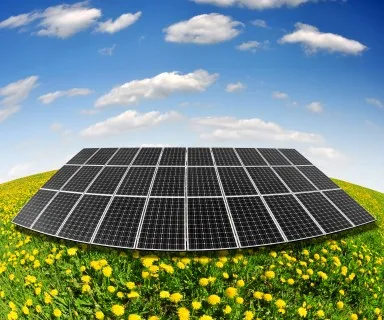
These Indian states remain cautious in pushing for solar power
Proposed tenders are delayed and pipeline is running dry.
The pace of new tender announcements and completed auctions has slowed down significantly in the last year (-68% and -59% respectively), according to Bridge to India. Southern states have frontloaded capacity buildout – Andhra Pradesh (installed plus tendered capacity of 74% as against March 2022 target), Telangana (70%), Karnataka (69%) – and are bound to slow down.
Amongst other large states, Maharashtra and Gujarat, like many others, have surplus power availability and remain unenthusiastic to large solar procurement programs.
Some states that have completed auctions with prices of INR 4.00-5.50/kWh in the last 6-12 months are refusing to sign PPAs creating uncertainty in the market, and visibility for new tenders has dropped sharply because of surplus power supply in most parts of the country.
Here's more from Bridge to India:
Gujarat and Uttar Pradesh could be the two major demand drivers for solar power in the coming years.
Rewa and Kadappa tender results have given new food for thought to policy makers, DISCOMs, project developers and investors. Greenfield solar power at current prices of INR 3.00- 3.50 (US 5¢)/ kWh should create strong demand pull in the medium-to-long term.
But in the near term, it is leading to buyer’s remorse for projects already built and under development. In particular, states that have completed auctions with prices of INR 4.00-5.50/kWh in the last 6-12 months (Jharkhand, Andhra Pradesh, Haryana) are refusing to sign PPAs, which is creating uncertainty in the market.
With states unwilling to sign new PPAs, both National Thermal Power Corporation of India (NTPC) and Solar Energy Corporation of India (SECI) are delaying proposed tenders and the pipeline of tenders is running dry.
Recently, Gujarat also dropped its plan for setting up a new 4,000 MW coal-based power project because of sufficient supply of power. But encouragingly, the state has indicated that it wishes to focus on renewable power for future procurement. Gujarat is setting up two new solar parks for 500 MW each but the state’s price expectation is believed to be around INR 3 (US 4.7¢)/ kWh in the wake of recent auctions.
Bridge to India believes that as one of the few large states with high power deficit, Uttar Pradesh (UP) could be a major demand driver for solar power in the coming years. The state has the largest peak demand-supply gap in the country and rural electrification rate is as low as 60%.
Even though UP has historically been a tough state for private businesses because of poor law and order situation and highly erratic power supply, the state is making steady progress under central government’s UDAY scheme. The new BJP government also seems more business friendly and has made reliable power supply as one of its core policies.








![Cross Domain [Manu + SBR + ABF + ABR + FMCG + HBR + ]](https://cmg-qa.s3.ap-southeast-1.amazonaws.com/s3fs-public/styles/exclusive_featured_article/public/2025-01/earth-3537401_1920_4.jpg.webp?itok=WaRpTJwE)
![Cross Domain [SBR + ABR]](https://cmg-qa.s3.ap-southeast-1.amazonaws.com/s3fs-public/styles/exclusive_featured_article/public/2025-01/pexels-jahoo-867092-2_1.jpg.webp?itok=o7MUL1oO)









 Advertise
Advertise


